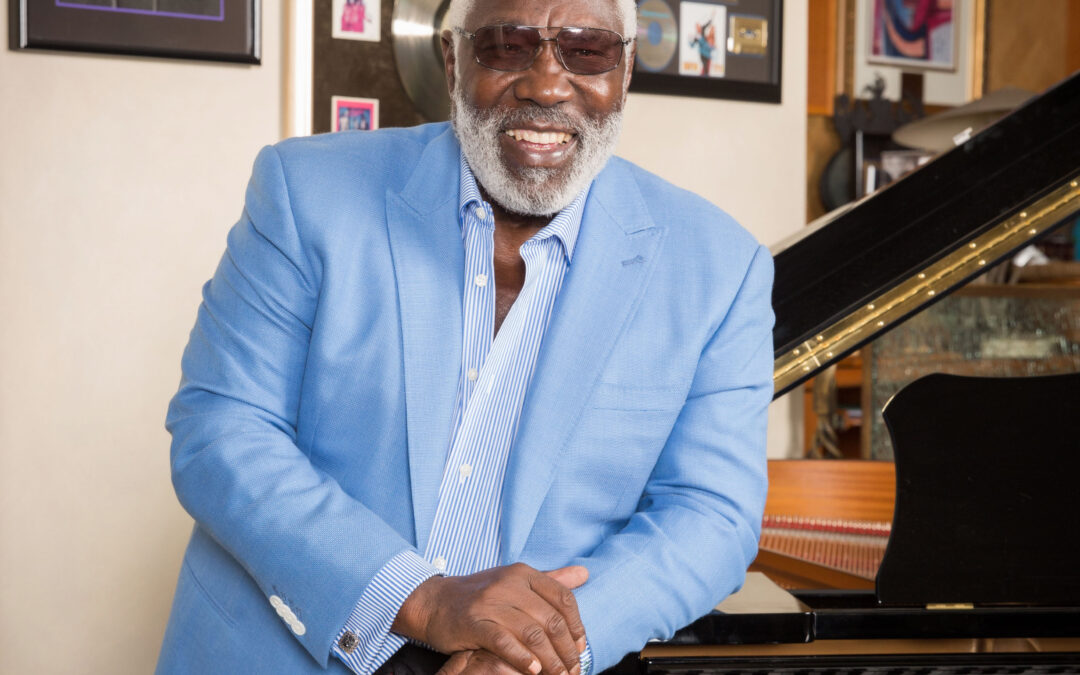(Eddie Levert of The O’Jays)
By Jeff Maisey
The O’Jays are one of America’s most beloved old school soul and R&B groups.
You no doubt know the songs from radio play and television commercials: “Love Train,” “I Love Music,” “Use Ta Be My Girl,” and “Backstabbers.”
Perhaps their 1973 hit, “For The Love of Money,” encapsulates their career looking back all these years later — more fame than money as things turned out.
The O’Jays got their start in the Cleveland, Ohio market under the name The Mascots and then The Triumphs.
“Basically, everyone was singing in the clubs there, like The Music Box, and places where a lot of the Motown acts would come,” said O’Jays founder Eddie Levert of the Cleveland music scene, “like The Supremes, Marvin Gaye, The Miracles, and James Brown. That was basically the music scene. That automatically inspired a lot of younger people in the neighborhood.”
Younger people like Levert and O’Jays members Bobby Massey, Walter Lee Williams, William Powell, and Bill Isles.
Levert said there were small recording studios in Cleveland attempting to model themselves after Motown, but his group decided to seek their fortunes out west.
By 1963, the group was known as The O’Jays and they released the song “Lonely Drifter.”
After The O’Jays departed Cleveland for California, they recorded a number of minor hits on Imperial Records including “Lipstick Traces,” “Look Over Your Shoulder,” and “One Night Affair.”
Being stargazers of Motown superstars and motivated to reach that level of popularity drove The O’Jays members’ towards fame, but not necessarily fortune.
“With every record we recorded in the 1960s and early ‘70s before we went to Philly International that was the idea — that we were going to have a hit record and become major stars,” said Levert. “That’s all we thought about. We were focused on being stars, not songwriters, not producers. The people that we were in business with in those days only thought of us as (performing) artists, not songwriters or producers.
“Now, I know I should have spent a lot more time producing and writing,” Levert continued. “I might have been much richer now.”
Signing with Philadelphia International Records was a game-changer for the career of The O’Jays. It was during this period — 1972-79 — that the O’Jays scored all of their Billboard Top 20 chart success.
The label produced what was known as the Philly International Sound and the majority of the songs recorded by the label’s artists were composed, produced, and published by the ownership songwriter team of Kenny Gamble and Leon Huff.
“They were writing such great songs,” said Eddie Levert of working in the studio with Gamble and Huff. “And you felt like, my little song, I probably should not even mention it. They were such great producers that you were almost intimidated.”
Levert said that while some songs such as “Backstabbers” was essentially brought to the group to sing, “Love Train” was written in the studio as they were making the album.
“In hindsight knowing that when we recorded those songs we had a lot of input on our vocals that became identifiable with the song, that should have been part of songwriting (credits).”
But it was not.
The popularity of the songs, however, propelled The O’Jay’s success with concert promoters and television appearances on programs such as “Soul Train” and “American Bandstand.”
“We got more gigs and more gigs in high profile places because of the popularity of those songs,” Levert said, “because those songs were played everywhere. We became universal.”
The music of The O’Jays had an impact on many people of all walks of life, serving as a soundtrack for the lives of those music lovers. This is not lost on Eddie Levert.
“A lot of that music people use in their everyday living and apply it in what they’re doing in their lives. Having that kind of affect on people with your music, you’re grateful that you had the opportunity to record those hits, but, in hindsight, you wish that you had your mind more on the business instead of just being the artist.”
Eddie Levert will appear March 24 at Brothers in Norfolk for two performances of storytelling and songs.




